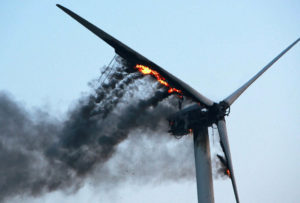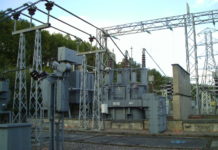 Energy Secretary Amber Rudd has signalled further looming cuts to renewable energy subsidies and a firm commitment to nuclear power and shale gas, as well as conventional fossil fuels.
Energy Secretary Amber Rudd has signalled further looming cuts to renewable energy subsidies and a firm commitment to nuclear power and shale gas, as well as conventional fossil fuels.
Outlining the department’s priorities to MPs today, Rudd said that security of supply and affordability came first and that Decc remains committed to meeting the UK’s carbon targets. The latter, said Rudd, were “more essential” than renewable energy targets.
Protecting UK industry from unaffordable policy decisions was also a priority, Rudd said, with “value for money at the top” of her list.
When it was pointed out to Rudd by Labour MP Alan Whitehead that locking in nuclear power at 93p per kW for 35 years might not represent best value for money, Rudd countered that “you should not be surprised” that reliable low carbon baseload commanded a premium.
Rudd said she expects a decision on Hinkley Point C to be made this year. She added that the ruling by the European Commission that support for nuclear power did not breach state aid rules was “completely robust”, despite an “unwelcome” legal challenge mounted by Austria. “So we don’t think it will impact on the final investment decision.”
Bonfire of the subsidies
Rudd offered few crumbs of comfort to renewable energy industries, refusing to confirm whether there would be a further round of contract for difference auctions. There will however be another capacity market auction, which has so far largely rewarded existing fossil plant.
While stating that heat will also be a priority for the department, an area in which Rudd admitted it had lagged, she admitted that there was uncertainty about the future of the Renewable Heat Incentive. Meanwhile, an announcement on Feed-In Tariff rates would be made “shortly”, she said.
Rudd was unapologetic for ending onshore wind subsidies a year earlier than anticipated. She claimed that three “larger” wind developers had approached her with plans for subsidy-free schemes in recent weeks.
Speaking alongside Rudd at the Energy & Climate Change Committee, Decc permanent secretary Robert Lovegrove, suggested that costs tended to come down fastest in industries “when subsidies begin to exit the system” because “normal market forces” then prevail. At that point, companies realise “relying on subsidies is not necessarily the most sustainable way of making a profit,” Lovegrove ventured.
Lovegrove added that, on current projections, the Levy Control Framework budget was spent, although he said it would remain within its 20% “headroom” threshold.
Committed to ‘low carbon’ shale gas
Rudd said that the decision by local authorities to reject shale gas planning applications was “disappointing”, but that it was early days yet for the UK shale industry.
“Shale will be an important part of the energy mix for the UK,” said Rudd. “It is an important part of our decarbonisation targets, because it is effectively a low carbon source,” she claimed. “And given that gas is going to remain an important part of our security of supply going forward, how much better to have our own gas than be importing it?
“So I remain committed to ensuring that we can explore for shale. I am aware of concerns. But the experts have all given their … stamp of approval … that it can be extracted securely and safely.”
Related articles:
Amber Rudd steps up to top energy job
CCL exemption axe will add eight figures to business energy bills warn TPIs
Osborne axes CCL exemption, promises review of ‘alphabet soup’ of energy taxes
Government confirms retrospective cuts to onshore wind subsidies
Utilitywise bets against Lord Redesdale on blackouts risk
Lord Redesdale ‘puts money on brownouts or blackouts by year end’
National Grid ‘delighted’ with demand response but warns over winter tightness
Only 32 firms have notified Environment Agency of ESOS compliance
Supply not demand: Capacity market design risks higher decarbonisation bill
National Grid urges major energy users to provide demand response for winter peak, may pay more
Decc tenders work to scope demand side response in future electricity capacity auctions
Decc remains confident of beating Tempus Energy’s legal challenge over demand side
CFD appeals may cost unsuccessful generators, Decc warns
Energy minister dismisses big company bias claims in CFD and capacity auctions
Another fine mess: Energy policy’s perverse outcomes mean ‘new Energy Act in 2017‘
Follow us at @EnergystMedia. For regular bulletins, sign up for the free newsletter.



